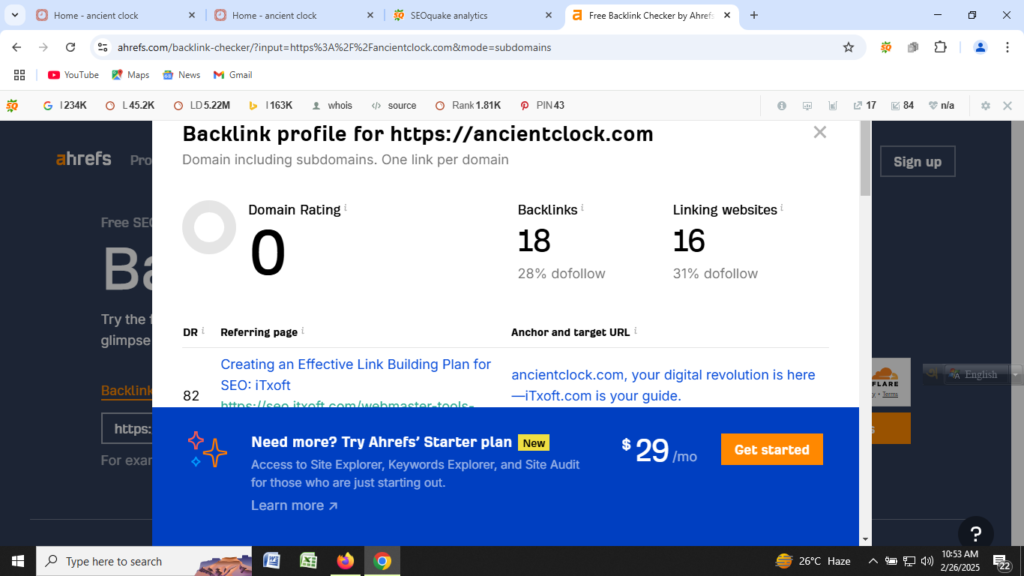In today’s fast-paced and technologically advanced world, digital marketing has emerged as an essential component of business success. With the rapid growth of the internet and the increasing use of digital devices, traditional marketing methods are no longer sufficient to reach and engage consumers effectively. Digital marketing offers a dynamic, measurable, and cost-effective way for businesses to connect with their target audience and achieve their marketing goals.
What is Digital Marketing?
Digital marketing refers to the promotion of products or services through digital channels such as search engines, websites, social media platforms, email, mobile applications, and more. It encompasses a wide range of strategies and tools that help businesses attract, engage, and convert potential customers online. Unlike traditional marketing, digital marketing allows for real-time analysis and adjustments, ensuring better returns on investment (ROI).

Key Components of Digital Marketing
- Search Engine Optimization (SEO):
SEO is the process of improving a website’s visibility on search engines like Google. By optimizing content, keywords, meta tags, and backlinks, businesses can rank higher in search results, drive organic traffic, and increase brand awarene - Content Marketing:
This strategy involves creating valuable, relevant, and consistent content to attract and retain a clearly defined audience. Blogs, articles, videos, infographics, and eBooks are common content marketing formats that help establish brand authority and trust. - Social Media Marketing (SMM):
Social media platforms such as Facebook, Instagram, Twitter, LinkedIn, and TikTok are powerful tools for engaging with customers. Through paid ads, influencer marketing, and organic posts, businesses can build relationships and increase their online presence. - Email Marketing:
Email remains one of the most effective digital marketing tools. It enables personalized communication with customers, promotion of new products or services, and nurturing leads through newsletters and targeted campaigns - Pay-Per-Click Advertising (PPC):
PPC involves placing ads on search engines or social media platforms and paying a fee each time the ad is clicked. Google Ads is a popular PPC platform that helps businesses target specific keywords and demographics to boost conversions. - Affiliate Marketing:
This is a performance-based marketing strategy where businesses reward affiliates (partners) for driving traffic or sales through their referrals. It’s a cost-effective way to expand brand reach and tap into new markets. - Influencer Marketing:
Brands collaborate with influencers who have a strong online presence and loyal followers to promote their products. This strategy leverages trust and credibility to influence purchasing decisions.
Benefits of Digital Marketing
- Global Reach: Businesses can reach audiences across the world without geographic limitations.
- Cost-Effective: Digital campaigns are more affordable than traditional advertising methods like TV or print.
- Measurable Results: Tools like Google Analytics provide real-time insights into campaign performance, allowing businesses to adjust strategies accordingly.
- Targeted Advertising: Digital marketing enables precise targeting based on demographics, interests, behavior, and location.
- Customer Engagement: Businesses can interact directly with their audience through social media comments, reviews, and messages, fostering customer loyalty.
Challenges in Digital Marketing
Despite its advantages, digital marketing comes with its own set of challenges:
- High Competition: The digital space is crowded, making it difficult for businesses to stand out.
- Changing Algorithms: Search engines and social media platforms constantly update their algorithms, which can impact campaign effectiveness.
- Privacy Concerns: With growing awareness about data protection, businesses must comply with privacy regulations like GDPR and maintain customer trust.
- Technology Dependency: Technical issues or poor website performance can negatively affect marketing efforts and user experience.
The Future of Digital Marketing
The digital marketing landscape is constantly evolving. Technologies like artificial intelligence (AI), machine learning, voice search, augmented reality (AR), and chatbots are reshaping how businesses interact with customers. Personalization will continue to play a key role, as consumers expect tailored experiences based on their preferences and behavior.
Moreover, video content, influencer collaborations, and mobile-first strategies will dominate digital marketing trends in the coming years. Businesses that adapt to these trends and invest in innovative strategies will remain competitive and relevant in the digital age.
Conclusion
Digital marketing is no longer optional—it’s a necessity for businesses aiming to thrive in a digital-first world. By embracing digital tools and strategies, companies can connect with their audiences more effectively, drive growth, and stay ahead of the competition. Whether you’re a startup or an established brand, leveraging digital marketing can unlock endless opportunities for success.
Would you like this as a downloadable Word or PDF file? Or do you want me to tailor this to a specific industry like fashion, education, real estate, or tech?